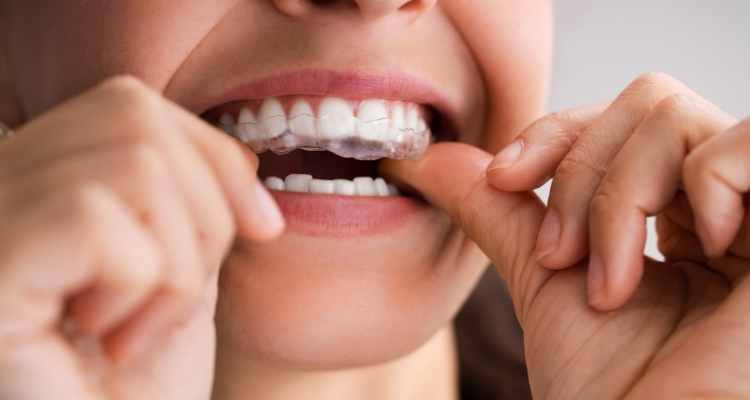Are you grinding your teeth or clenching your jaw as you sleep? This nighttime activity is a major cause of dental damage. As a result, you can suffer fractured teeth, jaw pain and other major problems. You can even lose some of your teeth when the damage necessitates tooth extraction. One of the available solutions for this problem is a dental night guard provided by your dentist.
What is a dental night guard?
Dental night guards, also called mouthguards, are plastic trays that cover top teeth to protect them as you sleep. The overall purpose of your night guard is to ease your bruxism, the condition of teeth grinding. These guards also protect your tongue, cheeks and gums from the damage teeth grinding causes.
Ideally, you have a custom mouthguard fitted by your dentist. These provide better protection than the one you buy over-the-counter at a drugstore. A mouthguard from your dentist’s office requires custom crafting in a dental lab. It is created from a mould of your teeth and slips easily into place for nighttime wear.
Night guards are not the only type of mouthguard available from your dentist. Some mouthguards protect teeth during active play, such as in contact sports or other activities that put your teeth at risk. You see athletes wearing mouthguards in soccer, hockey, boxing and even biking. Kids frequently must have one to participate in school-based athletics.
Who needs a mouthguard?
People of all ages can benefit from a mouthguard. Your dentist may suggest having one of your own fitted if you experience the following:
- Teeth grinding at night
- Contact sport participation
- Taking part in activities with high fall risk
Some of the sports activities for which people wear mouthguards include basketball, soccer, football, lacrosse, hockey, ice skating, biking and gymnastics.
Types of Mouthguards
There are two primary types of mouthguards. These include sports mouthguards that protect teeth from the trauma often experienced in contact sports or athletic pursuits. The second is a dental night guard to prevent the trauma of teeth grinding as part of a condition called bruxism. Although both types fit over your teeth and are made of clear plastic, they serve different purposes and look slightly different.
Where do I get my own mouthguard?
For bruxism, you need to get your mouthguard from your dentist’s office. Only a custom-fitted mouthguard for nighttime wear can adequately protect your teeth, gums, cheeks and tongue from the major damage that teeth-grinding causes. If you play sports or engage in high-risk activities, you can also buy a sports mouthguard from your dentist. You can also find this sports-related type of mouthguards available in drugstores or sporting goods stores, although they provide no protection from nighttime teeth grinding.
Benefits of Mouthguards
There are many benefits of wearing a mouthguard. In essence, you save your teeth from major dental damage. Overall, these benefits include the prevention of a range of problems, such as:
- Chipped teeth
- Broken teeth
- Lost teeth
- Gum damage
- Lip injuries
- Tongue injuries
- Cheek lining injuries
How long can I expect my night guard or sports mouthguard to last?
Custom fitted mouthguards from your dentist’s office last several years when properly maintained. These are made of highly durable plastic custom-fitted to your teeth. But how long it lasts largely depends on how much you use it and whether you take good care of it. Some people require more frequently replaced mouthguards than others, especially children and teens. At each dental checkup, your dentist inspects the device for cracks and other indicators of extreme wear.
Mouthguards you buy in a drugstore or sports store do not provide the durability, protection or fit of a dental-quality device. These typically require replacement every few months or so. This is particularly true if you wear braces on your teeth.

